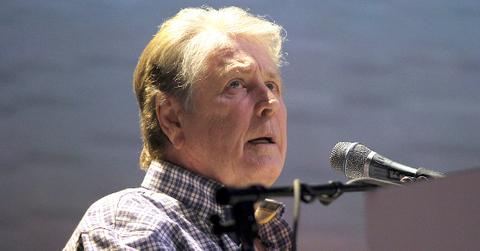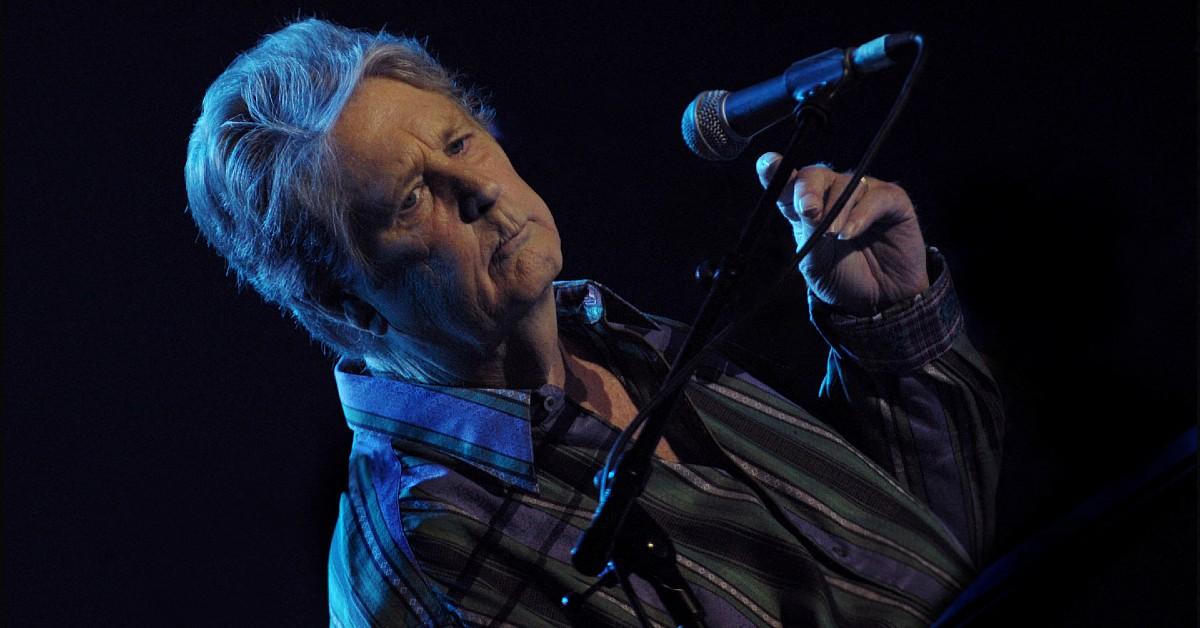EXCLUSIVE: How One Savage Shrink Pushed Brian Wilson Into a Descent of Madness, Drugs and Isolation

Brian Wilson was pushed into madness by a controlling psychologist.
June 18 2025, Published 11:39 a.m. ET
Brian Wilson once said: "I thought he was my friend, but he was a very f----- up man."
He was talking about Dr Eugene Landy – the psychologist who for years controlled nearly every detail of the Beach Boys legend’s life – and RadarOnline.com can reveal their relationship was just one of the hidden tortures that wrecked music icon Brian's life.
Wilson, who has died aged 82, was considered a musical genius.
But behind the sweet harmonies of Pet Sounds and Good Vibrations, a darker truth lurked – one dominated by abuse, addiction and alleged exploitation by the shrink he once called “master.”
Tortured Soul

The singer spent decades battling mental health issues and drugs demons.
Wilson's psychological descent began in the late 1960s, when, despite being at the creative peak of his career, he withdrew from performing and increasingly retreated from reality.
By 1968, he had quit touring and was battling the voices in his head – auditory hallucinations that would torment him for life.
By 1975, his first wife, 28-year-old Marilyn Wilson, desperate to reach the man buried beneath the drugs and weight gain, turned to a young but ambitious therapist named Eugene Landy.
Landy, then in his early 40s, was known in Hollywood for his intensive "24-hour therapy" techniques and aggressive interventions.
Though not a licensed psychiatrist, he declared Wilson to be schizophrenic and manic depressive.
Marilyn hired him – and within weeks, the transformation began.
Wilson, who had been eating birthday cake in bed and surrounded himself with sandboxes, began losing weight.
He got out of bed, exercised and eventually returned to the studio.
But Landy didn't come cheap.

A fortune was lavished on Wilson's care.
According to one source close to the family, his fee jumped from $10,000 to $20,000 per month, and soon included a full entourage of 'Landy handlers' – round-the-clock staff who monitored Wilson's every move.
"The handlers were nice enough," Wilson's former attorney John Mason said, adding: "But they recorded everything he said. It was constant surveillance."
Despite being let go once over costs, Landy returned in 1983 with even greater demands: full control over Wilson’s life and legal power to make decisions on his behalf.
"Brian was a prisoner in his own house," Mason, now 79, said. "If he didn't behave, Landy cut him off from friends and family — even his daughters, Carnie and Wendy."
Friends were banned, studio sessions were disrupted, and Wilson was reportedly medicated into passivity.
According to Mason, licensed physicians signed off on prescriptions, but it was Landy who made the calls.
Creative Control

Wilson's shrink even started to control his creative output.
"They prescribed what he wanted them to prescribe," Mason said. "The drugs kept Brian quiet – and working."
By the late 1980s, Landy had inserted himself into Wilson's creative affairs.
He even demanded co-writing credit on new songs and styled himself a band member.
"I influence all of his thinking," Landy bragged in one interview. "I'm practically a member of the band."
Wilson disputed that.
"People say Dr Landy runs my life, but I'm in charge," he once insisted.
Still, the therapist’s control deepened – until Wilson met Melinda Ledbetter, a 36-year-old former model turned car saleswoman, in 1986.


He ws finally freed from the shrink's grasp thanks to efforts from his family and partner Melinda.
She quickly recognized Landy's hold over Wilson and pushed back.
When Brian grew closer to her, Landy cut her off.
But she persisted.
With legal support from Wilson's family – and pressure from longtime collaborators – a court finally intervened in 1992.
Landy was barred from contacting Wilson, and the state of California revoked his license for ethical violations.
The quack died in 2006, aged 71, from lung cancer and pneumonia.
Wilson mourned him by saying: "I try to overlook the bad stuff. There was benefit."
But to others close to the star, the damage had been done.
"Brian never really came back," Mason said – adding: "He was kind, brilliant – but always under someone's control."


